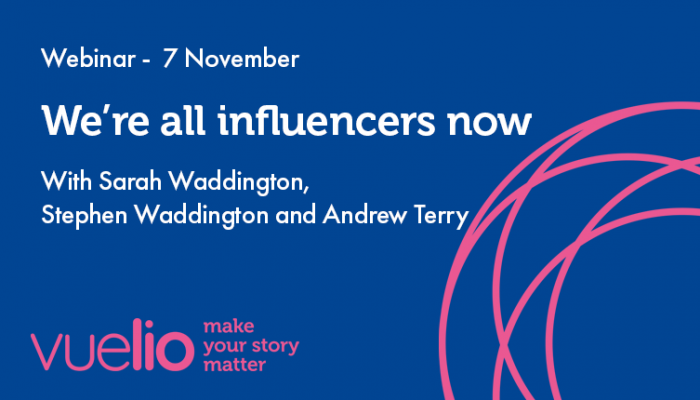Cut for time: extra answers from the We are all influencers now webinar
Our We are all influencers now webinar with Sarah Waddington, Stephen Waddington and Andrew Terry covered topics included in the #FuturePRoof guide to influencer marketing, but the parameters of ASA rules on promotional content and the ethics of influencer marketing are likely to raise yet more questions as the industry works towards defined and indisputable boundaries.
Here, Stephen and Sarah Waddington answer five such questions we didn’t have time for during the webinar – read on for more insight on #ads, keeping to the rules and where PR comes in…
If an influencer breaks the ASA rules, will we get in trouble as their collaborator? Is there anything we can do about this?
ASA rulings in the case of a breach of advertising practice are typically made against a brand and an influencer. There’s a collective responsibility for everyone involved in a campaign to ensure good governance. This includes an agency working as an intermediary.
Are there any best practice for promotional content in an influencer’s story rather than a regular post?
A paid-for relationship should be disclosed in the story using the tag #ad or #advertising. Platforms such as Instagram have been trialling meta tags as a means of creators disclosing a paid relationship but these have not been formalised.
If marketing currently owns influencer marketing in our organisation, how can PR get involved in the process?
Our view is that good influencer marketing should be based on working with an influencer as an individual and not a form of media. That’s the role of PR.
I have a question around inviting influencers to review an event, space or product. If they are provided with free access/free product but are asked to offer a genuine ‘warts and all’ review, does that still require an #ad?
This is a grey area. Strictly speaking any payment or payment in kind should be disclosed using the hashtag #advertising.
Is #ad exclusive to Instagram or would an influencer need to write this in their blog (where typically they’d add a disclaimer that they were invited)?
The nature of a relationship between a brand and an influencer should always be disclosed in the case of a paid relationship. A blog post provides the opportunity to do this in greater detail and disclaimers are appropriate in this instance.
Listen to the webinar and read the #FuturePRoof guide for more on best practice in the influencer sphere.








Leave a Comment